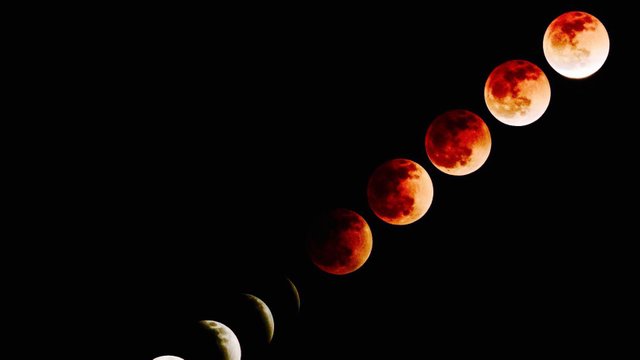World history would be very different without the blood moon eclipse of 1504

On January 31st, half of the Earth will experience a very special moon moment: “a super blue blood moon.” The term, according to NASA, describes three simultaneous celestial events: a “supermoon,” in which the moon is closer to Earth in orbit and appears 14% brighter than usual; the second full moon of the month, also known as a “blue moon”; and a lunar eclipse, which gives the moon a reddish or bloody tint. As a result, we can expect the heavens to look quite unusual.
Because we know what to expect, the lunar eclipse will be enjoyable—a curiosity, rather than a terror. We’ll understand that the seemingly blood-red moon is an optical illusion; just a matter of physics, and not an angry god, say, expressing his distaste for our human ways.
But imagine if you didn’t know the big eclipse was coming, and a stranger came along claiming to have direct contact with the moon’s creator—then demonstrated as much by predicting its disappearance from the sky.
That’s what happened in 1504, in the place now known as Jamaica, when Spanish explorer Christopher Columbus performed a deception that would alter the world’s future, as Duncan Steel explains in his book Eclipse: The Celestial Phenomenon that Changed the Course of History. Without this illusion, colonization of the Americas as we know it—with all it entailed, including the massacres of an incalculable number of indigenous people—might not have been.
Columbus was on his fourth trip to the Americas when, in June of 1503, he ran into some trouble. A shipworm epidemic destroyed two of his four ships, forcing him to land the remaining two on a Caribbean island inhabited by the indigenous Arawak people. This was fine for a time. But after six months of providing food for the strangers who had landed on their island, the Arawak were annoyed. Columbus’s sailors were aggravated, too.
The sailors mutinied. They massacred some of their Arawak hosts and stole their food. With relations between strangers and locals on the island rapidly deteriorating, Columbus needed to do something.
The explorer realized he had some information that the Arawak did not know. The 15th-century mathematician and astronomer Johannes Müller von Königsberg, also known as Regiomontanus, had published an almanac with astronomical tables covering the years 1475-1506. The text was indispensable to sailors. Columbus, who’d done a bit of traveling by then, was familiar with its contents, which he used to impress the Arawaks.
Three days before a lunar eclipse was to occur on the night of Feb. 29, Columbus set up a meeting with the Arawak chief. Columbus told the Arawak that his Christian god was angry because the locals were no longer offering cassava and fish to the visitors. Evidence of god’s rage, Columbus said, would be shown in three days’ time, when the moon would disappear from the sky and turn red with fury.
No one knows what the Arawak chief thought of the threat when it was delivered. But three days later, when the moon disappeared and then seemed to bleed, just as the stranger said it would, everyone was convinced that Columbus had very powerful connections. Columbus’ son, Ferdinand, recounted that the Arawaks “with great howling and lamentation came running from every direction to the ships laden with provisions and beseeching the admiral to intercede with his god on their behalf.”
Columbus pretended to consider the requests seriously. Then he sat in private and waited for the eclipse’s phases to bring back the moon, following the almanac. When the celestial body was about to re-emerge from the Earth’s shadows, according to astronomical calculations, Columbus came out and said he’d negotiated a peace. His god would be appeased if the Arawak continued to feed the strangers.
This seemed like a fine deal, in light of the seeming power Columbus wielded, and so the Arawak agreed. They helped keep the Spanish sailors alive until relief supplies arrived from Hispaniola in July. In November, the sailors headed back to Spain, and soon the conquering of American colonies began in earnest.
Whether that would have happened if Columbus and his crew had died on the island is an unsolvable mystery. But it’s clear that, without the eclipse trick Columbus pulled, he would have seemed much less impressive to everyone—Europeans and Arawak alike.
Done